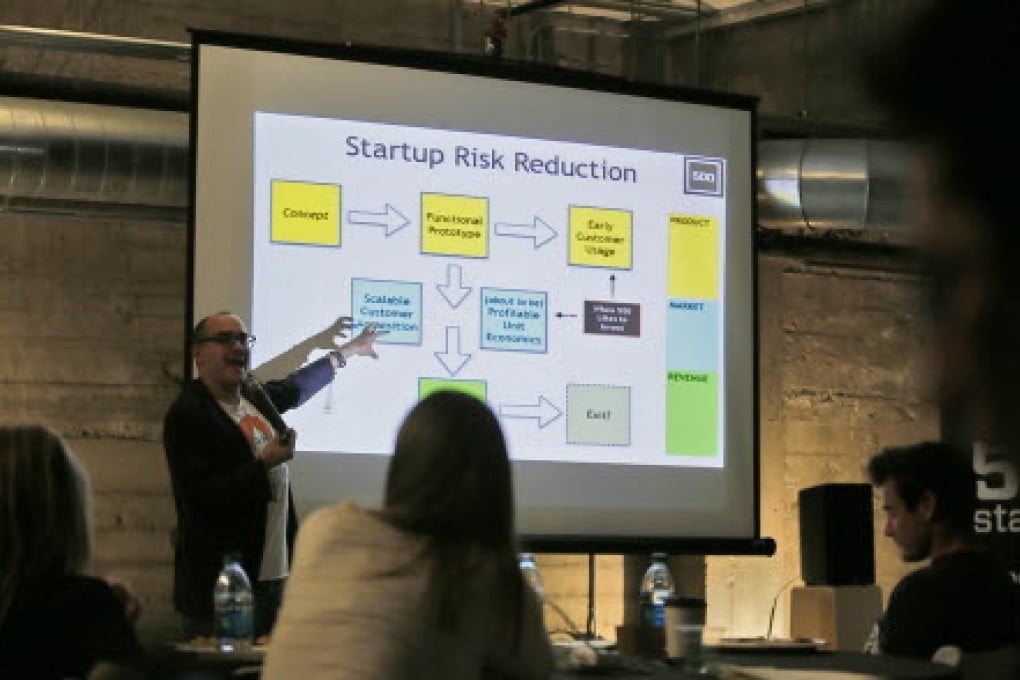The streets of San Francisco are buzzing with new ideas. Can Hong Kong create those sparks of innovation, too?
Kelly Yang says Hong Kong needs to teach its kids how to disrupt established norms, rather than encourage them to go into traditional 'safe' professions, to build our economic resilience

This summer, I spent a month in San Francisco, listening to friends sigh over soaring house prices, which are now over US$1 million on average. Sound familiar? The difference, though, is that in San Francisco, the median household income has risen over 34 per cent in the past decade, whereas in Hong Kong, it has risen only about 10 per cent. Average annual household income in San Francisco is now US$104,879; in Hong Kong, it's US$33,933. The reason for this stark difference is obvious: unlike Hong Kong, San Francisco has moved beyond finance to a new phase of growth: technology.
As you walk through the streets of San Francisco, there's something's electrifying about the air. I overheard people in cafes talking about how they're going to change the world. And in their case, they actually do, and they also bring lasting economic growth to the city, in the form of investment in human capital, higher education infrastructure and development. This creates jobs at all levels. That's why median income levels jump.
This sort of economic transformation hasn't happened in recent years in Hong Kong, as most of the city's wealth is wrapped up in the big banks and wealthy tycoons' pockets, and the "trickle down" effect is limited. Our financial industry is also heavily tied to the mainland. Every day the mainland economy suffers, Hong Kong slides further into irrelevance.
We need to become strong economically in our own right, not least because it is the only way we will ever get Beijing to listen to us
The solution is to diversify and innovate, create other sectors beyond finance and tourist-reliant commercialism. We need to become strong economically in our own right, not least because it is the only way we will ever get Beijing to listen to us.
To do this, we need to make fundamental changes to education and language emphasis. First, we need to create a more highly educated workforce. Specifically, we need to shift the focus to creative and critical thinking, project-based learning, leadership and entrepreneurship. It's important to lay a strong foundation in science, technology, engineering and maths. But it's even more important to teach the ability to really question things. That, to me, is why San Francisco is ahead of the curve. Their workers are fundamentally better at "disrupting" established norms.
Here in Asia, generations of lawyers and i-bankers teach their kids to study hard so they can go into the same professions. "Stability over risk" is the motto of most families. This may have worked well for us in the past, but if we keep it up, it will be our greatest downfall. Recently, Bloomberg reported that the number of Harvard MBAs taking jobs in i-banking has plummeted. Instead, they are joining start-ups. That's the kind of forward thinking Hong Kong needs.
Finally, we need to shift the language focus in schools. If we want to be the home base for the world's next Uber, our workers need to be able to communicate fluently in languages spoken by the rest of the world. Right now, like it or not, that's English and Putonghua. However, the vast majority of our local school classes at primary level are taught in Cantonese. Studies show that our standard of English as a city is in decline, while other Asian cities' levels are on the rise. We need to bring up our level of English to surpass Singapore's. We also need to bring up our level of Putonghua, not because we want to kowtow to China, but because we want to leverage the massive consumer market. It's not personal; it's practical.
